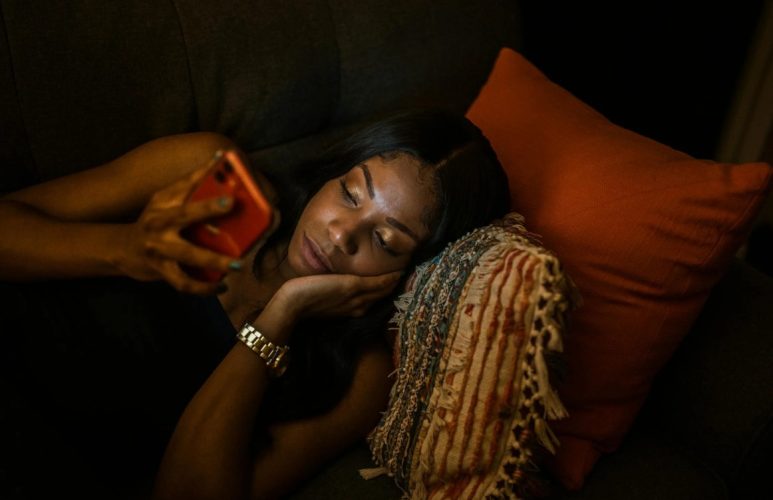
Social media is all around us: from advertising to education, hospitality to retail. Businesses and individuals rely on social media for awareness, staying connected with the world, and vegetating on the couch. Increasingly, in a world with more demands on our time, it has become a portal that seems to soothe and aggravate stress in equal measure.
Recent data from Global WebIndex suggests that over 60 percent of the world uses social media, with many spending two hours daily on various platforms. According to Pew Research, more than 80% of US audiences use YouTube, while almost 50% use Instagram.
Despite these overwhelming statistics, social media has garnered a somewhat mixed reputation. While it shows excellent potential for outreach and marketing, what does it imply for younger or vulnerable audiences?
Riding the tide of change are some new-age social media companies, endeavoring to do things differently.
Unfiltered Reigns Supreme on BeReal
BeReal, the French photo-sharing app started in 2020, prioritizes unfiltered reality. The app asks users to share one unfiltered photo every day to connect with their followers. The deal is that when the notification arrives, one must upload a photo from their current situation, without bothering about angles or fancy filters and all that jazz.
The focus on honesty is in sharp contrast with Instagram, where it has become the norm to share heavily edited pictures. The emphasis on perfection is so pronounced that many among us feel burdened and self-critical. The currently ongoing Instagram lawsuit is steered by many worried parents, whose families have suffered anxiety and depression due to Instagram addiction.
According to TruLaw, the complaints stem from allegations that Meta understood the potential harms of the platform, which some label “dopamine-manipulating.” However, it failed to issue adequate warnings in a bid to maximize profits.
BeReal enjoyed a good run a few years ago, serving to equalize and bring people together over honest chaos. Although it has faltered along the way, the deeper sentiment indicates an understanding of how manufactured perfection on social media can be damaging.
“Toxic” Content Moderation on Threads
Sharing text-based content remains popular on social media, as X will vouch for. At one time, blogs were all the rage, influencing writers (and wannabe writers) to share their work easily. Micro-blogging, as initiated by Twitter, changed that dynamic to a large extent.
What also changed was the positive vibe that many people connected with blogging. Many users report that X has a toxic atmosphere, with many entities using it for ulterior motives. In November 2024, The Guardian announced that it would no longer post on the platform, concerned that it had played a part in shaping political discourse in the US.
Threads aims to diffuse this toxicity through stricter content moderation. The platform allows users to share text updates within a character limit of 500 (compared to 280 on X). It means users have an inherent advantage in expressing themselves, which promotes more meaningful engagement.
It can be argued that stricter moderation also implies censorship. The jury is out on how Meta will manage the brewing debate over committing to either moderation or free speech. However, a tradeoff of some sort may be essential to manage the mental health crisis in the world.
Direct Messaging Restrictions on Coverstar
One of the ugliest facets of social media communication is how some people use it for cyberbullying. Phishing, scamming, and related criminal activities often stem from innocuous links in direct messages. The National Cybersecurity Alliance notes that phishing messages often use urgent language while seeking personal information—a trick some audience groups may fall for.
Coverstar, advertised as a safer alternative to TikTok, claims to take safety extra seriously. It targets kids aged 9-16, which is the prime motivation behind this claim. The platform has a permanent restriction on direct messages. It also disallows explicit and dangerous content.
The premise sets Coverstar as potentially less dangerous than other alternatives for a vulnerable user group. It will still be essential for parents to play an active role, learning the app and using it together to ensure appropriate, addiction-free usage. For instance, children will require guidance on sharing personal information, such as videos and pictures, online.
Social media continues to grow rapidly, driven by both socio-political unrest and cultural celebrations. These platforms have become part of everyday life, keeping people connected to their communities and the world at large.
It is heartening to see that new social media apps are learning from the shortcomings of their predecessors and are integrating features to improve safety and mental health. Their growth and capacity to compete with technology giants remain to be seen.
At any rate, one can hope that these developments also encourage older social media platforms to reexamine the limitations of their business models, particularly from a social and mental health perspective.
